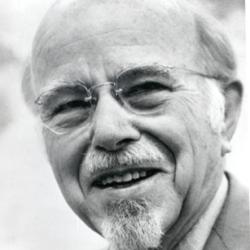An article recently came to my attention with a very simple claim. J. Brennan, who serves with the IMB and South Asia, makes this argument:
“Seminary education can be a useful means of preparing missionaries, but it’s not a necessary means of doing so.”
Brennen’s comments are disturbing for a few reasons. Why? They are unclear and potentially even misleading.
What else is “not necessary”?
The two keywords that need explanation are “necessary” and “seminary.” Below, I will address the latter. To say something is “not a necessity” fundamentally is a defensive argument. It is not a constructive argument. In some respect, we could say about almost anything that it is not a “necessity.” After all, in countless areas of life, what is absolutely essential for a task are pretty small if were honest.
Because Brennan works with the IMB, I can assume he affirms believer baptism. Nearly every Southern Baptist I know highlights the importance of baptism. I would ask Brennan, “Is baptism necessary?”
We can always point to the thief on the cross; he was never baptized. While Brennan and others would admit that someone can be saved or be a Christian without being baptized, most would be very reluctant not to press the utter importance of baptism. Many Southern Baptists would even venture to say baptism, in some respect, is “necessary”, i.e. critically important, without implying that it is essential for salvation.
What is “biblical” thinking?
Brendan tells us to think biblically. He writes,
“The most important point, though, is to think biblically about preparation and training for missionary work….”
“In the first place, ministry training in the Bible rarely took the form of a set-aside time of “preparation…. Workers were trained “on the way” in the midst of preaching and discipling new believers into churches. Training in the Bible took place in the midst of the same types of service the workers would be doing themselves.”
Why are such statements and appeals to “biblical” training problematic?
One cannot use the Bible to argue against the “necessity” of seminary training when seminary education did not exist in the early church. One might mistakenly think this would proves Brennen’s point. But it doesn’t. On the one hand, the argument would be stronger if first-century Christians had the option for formal theological education but then chose against it.
More importantly, ancient cultures had their own manner of informal training. Such informal training could certainly be as rigorous as the type of training that we today call formal theological education. Accordingly, the average pious Jew was far more versed in the Hebrew Scriptures than most seminarians today. This explains one reason why New Testament authors could so easily allude to the Old Testament and expect their readers to catch the various echoes and allusions.
So, the writer is partially correct that workers were trained “on the way.” But he overlooks the training that was built in to their upbringing and proceeded their missionary labor.
A more biblical example
If we really want to make a “biblical” argument, then we need to refocus our attention on how we train our children, how the rituals of our daily life reinforce the Bible’s theological narrative, and the manner local churches train Christian workers. I’ll discuss more of this last point below.
Also, if we really want to make a “biblical” argument, we should desire Paul’s training, “the model missionary.” Should we not seek to be as prepared as he was? Let’s remember: what is merely possible –being fruitful without formal theological training– is also not the goal. Our aim is not to see what can be done without training. We want fruitfulness. Period. That’s the end goal.
The existence of this conversation likely is a symptom of bigger problems. After all, why focus on what are minimal requirements rather than focus on how to get more missionaries trained theologically?
Theological education on the field
Where should theological education occur? I can only hope and presume that the writer thinks that missionary training does include theological education.
If so, Brennan seems to implicitly assume that, in actual practice, adequate theological training routinely occurs on the field. Certainly, many instances exist where rigorous theological education does happen on the field. But this is the exception, not the rule. In reality, much if not most training received by missionaries in the field is pragmatic, formulaic, and oriented on using a particular tool.
I’ve had numerous discussions with colleagues about theological missiological matters to which the other person simply says, “Well, I’m no theologian, but…”, after which he appeals to some weekend training or anecdote that is heard.
While theological training on the field is ideal, it happens far too little. The stress of language learning, anxiety of a living in foreign culture, and the pressure to do more ministry squeeze out the time that could be dedicated to one’s ongoing theological development.
The heart of missionary training
Brennen adds,
“The types of skills needed to flourish on the mission field . . . may not make the list of learning outcomes for a seminary class.”
“Jesus’s and Paul’s method of training sent-out ones indicates that those who are called to do the work are most effectively equipped as they are doing it”
These comments once again overlook the sort of religious training that was “the air you breathe” as a first century Jew. Brennon’s phrase “as they are doing it” is at best a half-truth. Only certain types of knowledge are best gained by “doing it.” Many people presume that the heart of missionary training is cross-cultural training, learning how to adapt to cultures.
Rather the heart of missionary training is biblical and theological. Its aim is doxological.
By analogy, being a professional musician requires a whole complex set of skills. Preparing your voice through voice lessons is a necessary part but it is not the heart of what it means to be a professional singer.
Being a missionary requires far more than the ability to cross cultures. The missionary should be able to do everything a pastor does but in another cultural context while confronting cultural views and religions not his or her own. If theological training is not necessary for missionary, then it is unnecessary for anyone.
As an aside, the New Testament does not give (many, if any) examples of workers who precisely parallel the sort of missionaries we have today. With the possible exception of Lystra, those in Acts largely worked within their own culture. Keep in mind that first century Palestine was highly Hellenized. We ought not sharply dichotomize Palestinian Jewish culture and Greek Hellenized culture. In fact, those who join Paul on his trips were thoroughly familiar with Greek culture and concepts.
Are doctrine and theology necessary?
So, we return to the meaning of “necessary”. We must clarify what is necessary within theological education. What do we think is essential for missionaries to learn?
Brennen states,
“In other words, it wasn’t learning about doctrine and theology in a classroom and then teaching junior high Sunday school on the weekends…”
Presuming he agrees learning about “doctrine and theology” are important, the only substantial detail he adds in this sentence is “in a classroom” (since teaching junior high is not paradigmatic to contemporary theological education). If “doctrine and theology” are critical, i.e. “necessary”, then we should take great pains not to minimize the crucial role that formal theological training plays in the preparation of missionaries.
Of course, who wouldn’t like to see formal theological training happen elsewhere besides at a campus in a school classroom? I expect that for many people there criticism against seminary education is primarily level at classroom education.
Unfortunately, casualties of this debate include “doctrine and theology.” These important matters get lumped into the pedagogical issue of location, namely, where theological training takes place, e.g., “in a classroom” or elsewhere. So, while it is legitimate to debate the pedagogical merits of the classroom, we ought not throw doctrine and theology under the bus.
Theological training in the local church
This entire debate is a symptom of a far deeper problem, one that people rarely address. Theological training primarily should occur in local churches.
But that doesn’t happen in a typical church. I don’t suggest that churches don’t teach the Bible. However, most pastors are not interested or equipped to provide the sort of rigorous training they received or that they wish they had received.
Pastors tend to prioritize other practical issues. Countless pastors do not see the training as a “practical issue.” Some pastors, no doubt due to insecurity, wear their lack of training as a badge of honor. They remind people that Peter and John were ordinary, uneducated fishermen. Consequently, they perpetuate the notion that theological education and formal training are not that important and perhaps only good for those who like intellectual speculation.
















